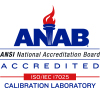 Posted on
Posted on 
In the exciting realm of medical research, data loggers are truly invaluable tools for collecting and analyzing data. These devices have the power to gather a wide range of valuable information, from temperature and humidity to pressure and other environmental parameters. However, it is crucial to adhere to best practices when it comes to data collection and analysis using data loggers. Doing so will ensure the accuracy and reliability of the collected data, ultimately propelling research forward.
Let’s delve into some essential best practices for employing data loggers in medical research:
Choose the Perfect Data Logger: It’s important to remember that not all data loggers are created equal. Each type is tailored to suit specific applications. Hence, it is paramount to carefully select the appropriate data logger that can accurately and reliably collect the specific data needed for research endeavors.
Calibration: Before putting a data logger to work, it’s crucial to ensure it is accurately calibrated. Calibration guarantees that the data collected falls within an acceptable range of error, thereby guaranteeing the reliability of findings.
Precise Installation: Properly positioning and installing the data logger is a key aspect of accurate data collection. For instance, when monitoring temperature, it is vital to position the data logger in a location that genuinely reflects the temperature of the area under observation.
Analyze the Data: Once the data is collected, it is essential to analyze it using appropriate statistical tools and techniques. This analysis can provide insights into trends, patterns, and relationships that can inform medical research.
Data Validation: Validation ensures that the data collected is accurate and reliable. Validation can include comparing data collected by the data logger with other sources of data or conducting a repeat test to confirm the data’s accuracy.
Documentation: Last but certainly not least, it is vital to document all the data collected by the data logger. Comprehensive documentation includes essential details such as the date and time of data collection, relevant environmental parameters, as well as any noteworthy issues or anomalies encountered during the process. This meticulous documentation ensures transparency and accountability in research endeavors.
Data loggers hold tremendous potential in the quest for knowledge and medical advancements. By adhering to these best practices, researchers can be confident in the accuracy and reliability of the collected data. MadgeTech simplifies these critical tasks by offering precise data loggers accompanied by ISO 17025-accredited calibrations. Additionally, the MadgeTech 4 Secure Data Logger Software provides a user-friendly interface with automatic calculations, report generation, and ensures data security in compliance with 21 CFR Part 11.






